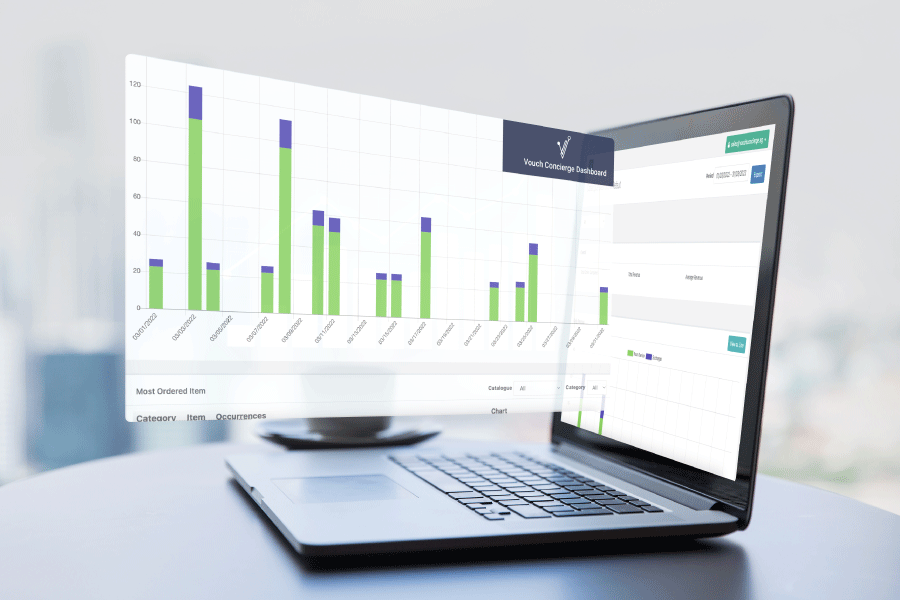
The Business Value Of Hotel Analytics
Data seems to be the new key to keeping ahead, whether utilised to study guest patterns, analyse reviews, or enhance service times. Almost every sector nowadays is underpinned by software, and if a company does not have a thorough grasp of its operations, customers, and competitors, it will struggle to stay afloat, much alone flourish. In the intensely competitive realm of hospitality, obtaining, analysing, and responding to data may have a significant influence not just on a hotel’s bottom line, but also on its reputation since hotels serve millions of guests daily. With the constant changes in the hotel industry, such as keeping up with sustainability trends to appease conscious guests and utilising technology for a contactless hotel experience in Singapore and beyond, data analytics may assist in gaining significant insights that can transform the way hotels conduct operations.
What is data analytics?
The systematic computational analysis of data is known as analytics. It is used to identify, evaluate, and communicate meaningful patterns in data, such as emerging trends. Additionally, it entails using data patterns for effective decision-making. As we enter a period of recovery and expansion in 2022, information derived from future data trends will become the primary source of business decision-making.
Data analytics in the hotel industry
Imagine this scenario: Your hotel has launched a guest experience platform for a few months now, and you realised that many users are seeking transportation options to the airport on your platform. With the help of data analysis, you could discover the time period in which users are information gathering, and promote your airport transfer services at the right time. Not only are you adding value by proactively providing relevant information to your guests, but you are also benefitting through cross-selling of your additional services.
This is merely an example that goes to show how effective analytics assists in the development of intelligent logistical services and marketing, as well as the identification of target audiences – a strategy that has led to being highly effective in the hotel industry. In the context of the hotel business, an abundance of data is available: guest stay data, booked data, market data, customer data, and more.
With several sources contributing to the data pool used by hotel companies, some key concerns can arise:
- How is the data acquired, and from where?
- How do hotels make use of this information?
- How is the information processed?
- How and in what format is the data consumed?
There are several sources of data in the external environment as well, but hotels encounter difficulties in gathering external data and deriving analytical insights from it. This has caused hotels to turn to internal data from bookings and guest stays, which has added to their understanding of their client base. Data-driven insights have enabled hotels to curate and customise products and services for their loyal guests, hence increasing brand equity. It has also aided them in creating and managing demand in the most optimal manner possible.
With data analytics, hotels can benefit in the following ways:
- Marketing strategy for increased revenue
- Improved personalisation of the guest experience, resulting in customer loyalty
- More accurate forecast of customer behaviour for improved inventory and productivity work processes
- Increase marketing effectiveness
- Aids in scouting the overall business environment, including the competition
Why is Vouch important in all of this?
Vouch is a seamless guest facing platform that acts as an extremely convenient tool for data collection. Our Guest Experience Platform is designed with a great user interface experience and design, with guests finding our platform easy and pleasing to use. This also means we receive high user traffic volumes on a daily basis. As transactions and activities made on the platform are all recorded and data is shared with the respective hotels for deeper analysis, hotels can discover insights on customer behaviours and make improvements to their operations accordingly.
Additionally, Vouch has multiple self-servicing functions set in place across the entire guest journey from pre-arrival to the end of the stay. For instance, guests go through a platform to ask questions and get services done, such as booking amenities, requesting housekeeping items, ordering food and beverages, and more. With all these features in place, it further increases the number of touchpoints for data collection, allowing hotels to conduct a 360 analysis of their business.
Conclusion
Hoteliers have lately discovered that using data analytics (from both external and internal sources) may help them increase revenue, boost marketing efforts, and even enhance their services. This is due to the fact that data gives critical answers that may aid in cost savings, optimised products, better decision making, and business growth. It can also be utilised to identify perspectives that can help in strategic business decisions.
For hotels to thrive, data analytics need to go beyond simply collecting data from external sources. So, if you are ready to take your hotel to the next level, begin utilising hotel data analytics right away by collaborating with Vouch! Our Guest Experience Platform is designed to not only increase customer satisfaction and loyalty by offering the resources needed, but also assist hotels in collecting the relevant data needed to make informed decisions in the long term. That way, you can gain a competitive edge over competitors as you seek to make the most out of the platform. For more information about Vouch and our services, contact us today.

The Business Value Of Hotel Analytics
Data seems to be the new key to keeping ahead, whether utilised to study guest patterns, analyse reviews, or enhance service times. Almost every sector nowadays is underpinned by software, and if a company does not have a thorough grasp of its operations, customers, and competitors, it will struggle to stay afloat, much alone flourish. In the intensely competitive realm of hospitality, obtaining, analysing, and responding to data may have a significant influence not just on a hotel’s bottom line, but also on its reputation since hotels serve millions of guests daily. With the constant changes in the hotel industry, such as keeping up with sustainability trends to appease conscious guests and utilising technology for a contactless hotel experience in Singapore and beyond, data analytics may assist in gaining significant insights that can transform the way hotels conduct operations.
What is data analytics?
The systematic computational analysis of data is known as analytics. It is used to identify, evaluate, and communicate meaningful patterns in data, such as emerging trends. Additionally, it entails using data patterns for effective decision-making. As we enter a period of recovery and expansion in 2022, information derived from future data trends will become the primary source of business decision-making.
Data analytics in the hotel industry
Imagine this scenario: Your hotel has launched a guest experience platform for a few months now, and you realised that many users are seeking transportation options to the airport on your platform. With the help of data analysis, you could discover the time period in which users are information gathering, and promote your airport transfer services at the right time. Not only are you adding value by proactively providing relevant information to your guests, but you are also benefitting through cross-selling of your additional services.
This is merely an example that goes to show how effective analytics assists in the development of intelligent logistical services and marketing, as well as the identification of target audiences – a strategy that has led to being highly effective in the hotel industry. In the context of the hotel business, an abundance of data is available: guest stay data, booked data, market data, customer data, and more.
With several sources contributing to the data pool used by hotel companies, some key concerns can arise:
- How is the data acquired, and from where?
- How do hotels make use of this information?
- How is the information processed?
- How and in what format is the data consumed?
There are several sources of data in the external environment as well, but hotels encounter difficulties in gathering external data and deriving analytical insights from it. This has caused hotels to turn to internal data from bookings and guest stays, which has added to their understanding of their client base. Data-driven insights have enabled hotels to curate and customise products and services for their loyal guests, hence increasing brand equity. It has also aided them in creating and managing demand in the most optimal manner possible.
With data analytics, hotels can benefit in the following ways:
- Marketing strategy for increased revenue
- Improved personalisation of the guest experience, resulting in customer loyalty
- More accurate forecast of customer behaviour for improved inventory and productivity work processes
- Increase marketing effectiveness
- Aids in scouting the overall business environment, including the competition
Why is Vouch important in all of this?
Vouch is a seamless guest facing platform that acts as an extremely convenient tool for data collection. Our Guest Experience Platform is designed with a great user interface experience and design, with guests finding our platform easy and pleasing to use. This also means we receive high user traffic volumes on a daily basis. As transactions and activities made on the platform are all recorded and data is shared with the respective hotels for deeper analysis, hotels can discover insights on customer behaviours and make improvements to their operations accordingly.
Additionally, Vouch has multiple self-servicing functions set in place across the entire guest journey from pre-arrival to the end of the stay. For instance, guests go through a platform to ask questions and get services done, such as booking amenities, requesting housekeeping items, ordering food and beverages, and more. With all these features in place, it further increases the number of touchpoints for data collection, allowing hotels to conduct a 360 analysis of their business.
Conclusion
Hoteliers have lately discovered that using data analytics (from both external and internal sources) may help them increase revenue, boost marketing efforts, and even enhance their services. This is due to the fact that data gives critical answers that may aid in cost savings, optimised products, better decision making, and business growth. It can also be utilised to identify perspectives that can help in strategic business decisions.
For hotels to thrive, data analytics need to go beyond simply collecting data from external sources. So, if you are ready to take your hotel to the next level, begin utilising hotel data analytics right away by collaborating with Vouch! Our Guest Experience Platform is designed to not only increase customer satisfaction and loyalty by offering the resources needed, but also assist hotels in collecting the relevant data needed to make informed decisions in the long term. That way, you can gain a competitive edge over competitors as you seek to make the most out of the platform. For more information about Vouch and our services, contact us today.
